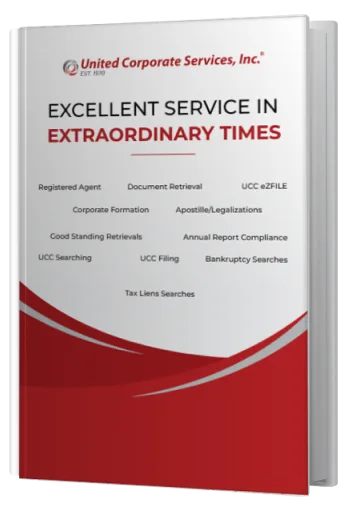Visit the CTA Reference Center to receive the latest updates on the Corporate Transparency Act. Click here!
Visit the CTA Reference Center to receive the latest updates on the Corporate Transparency Act. Click here!
Submitted by UCS on April 20, 2023

The Delaware Secretary of State has a policy of not allowing entities to report their Registered Agent address as their Principal Place of Business address on their annual reports. Recently, in an effort to further enforce this policy, the state announced that they will contact any entity that has listed their Registered Agent’s address as their Principal Place of Business notifying them that they have 45 days from the date of the notice to amend their Annual Report to reflect the correct principal place of business address. Failure to amend the Annual Report may result in a restriction of services rendered by the Division to the entity(ies) in question, or other legal action including, but not limited to, the loss of Good Standing status.
We thought this would be a great opportunity to explain the difference between a principal place of business and a registered agent address.
A principal place of business is the primary location where a company conducts their business.
If the company does not have a ‘storefront’, wherever the business books and records are kept would be considered the Principal Place of Business. This is often where the head of the firm and other senior management personnel may be located.
Only if that place of business is in the State of Delaware. For example, ABC Corporation is registered as a Delaware corporation and maintains an office in Delaware where all officers meet daily to conduct business.
A registered agent (also known as a resident agent, statutory agent, or agent for service of process) is a business or individual designated to receive service of process (SOP) when a business entity is a party in a legal action such as a lawsuit or summons. The registered agent’s address may also be where the state sends the paperwork for the periodic renewal of the business entity’s charter (if required). The registered agent for a business entity may be an officer or employee of the company, or a third party, such as the organization’s lawyer or a service company. Failure to properly maintain a registered agent can affect a company negatively.
Can UCS help me amend my annual report?
Yes. Contact a Client Service Representative at info@unitedcorporate.com to learn how we can help process the amendment and answer any additional questions.

Written by Our Team
United Corporate Services (“UCS”) provides registered agent services in all 50 states and U.S. territories as well as in select international jurisdictions. With 50 plus years of experience in the legal services industry, UCS partners you with a highly skilled staff of Client Service Representatives who can help with navigating through the complexities of forming and maintaining companies for yourself or your client.
Related Posts
September 18, 2024
In a recent update shared by the NYS Franchise Tax Search Unit, effective August 15, 2024, UCS will no longer process New York State (NYS) Franchise Tax searches. This significant change impacts how businesses will access critical...
Read Full PostMarch 15, 2024
In 2019, a new regulation was implemented in Canada, mandating federally incorporated, privately held companies incorporated under the Canada Business Corporations Act (CBCA) to establish and maintain comprehensive records of in...
Read Full PostFebruary 14, 2024
In this guest blog post, we present an article authored by Andrew J. Kimball, an Associate at Norris McLaughlin, P.A., and Peter D. Hutcheon, Of Counsel at the same firm. The article delves into the necessary measures that financi...
Read Full PostUncover the nuances between a Principal Office address and a Registered Agent address or obtain useful insights on naming a Secured Party in a UCC Financing Statement, among other captivating subjects.
Download a Free Copy of Your e-Book Now!